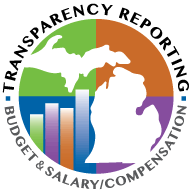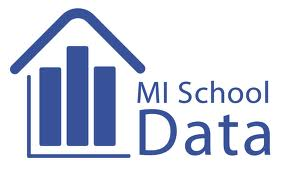
Some 145 students who lacked a high school diploma used the services of the Learning Bank’s Turning Point Program during the 2014-15 school year, as the Learning Bank continues to provide year-round programming for adult education students and increased instructional support for evening students.
However, the impressive statistic is this – 90 percent of Learning Bank students who took GED tests last school year passed, compared with a national average pass rate of 69 percent. This is another example of how Monroe Public Schools is laser-focused on being the school district where your child succeeds.
The Learning Bank and another Monroe Public Schools facility, Orchard Center High School, work closely together to help a segment of society which is most susceptible to unemployment, layoff or general lack of a profession or skills to obtain a job – those who did not complete high school.
“Having a high-school diploma or a GED is critical for anyone in today’s society – not only for jobs but to enter other post-secondary educational opportunities -- and the Learning Bank has proven its worth in helping citizens to earn that diploma or certificate,” said Dr. Barry Martin, superintendent, Monroe Public Schools.
Since a new testing center was opened at Orchard Center earlier this year, 179 GED tests have been taken, representing 91 students attempting to pass the four tests required for a GED – math, reading and language arts, science and social studies, all of which are aligned with Michigan Common Core standards.
The support from Monroe Public Schools for a program that is successful for students was demonstrated recently when a student persistence liaison was hired to provide additional student completion support for day and evening Adult Education classes at Orchard Center.
Like the old Beatles’ song says, The Learning Bank “gets by with a little help from its friends.” These friends have proven loyal and extremely supportive.
“The partnerships with Monroe County Community College and with Monroe Bank & Trust have worked out great and have led to other groups coming forward to help our students,” Dr. Martin said.
For instance, so far in 2015, 145 Learning Bank students have participated in the MBTeach Financial Literacy Program sponsored by Monroe Bank & Trust, bringing to 424 the number of students since the program began. The classes are offered once weekly over five weeks. MBT continues to be a key player in Learning Bank operations, providing facility and operations support for the Learning Bank and its students.
MCCC has helped by opening a new “Turning Point” Adult Education site for GED students and high school graduates needing remediations to pass the Compass test. This class meets once weekly at MCCC’s Career Technology Center. In addition, MCCC continues to provide career counseling to Learning Bank students once a week. MCCC and other community partners work together to provide mentoring support for students pursuing post-secondary education.
“That mentoring in college is especially important because most of our students in the adult education program come from situations where they are the first in their families to go to college,” Dr. Martin said.
Two new partners have come on board recently – the IHM Sisters and RSVP, who provide tutoring support to students of the Learning Bank and Orchard Adult Education.
Resting on past success is not in the plans for the Learning Bank.
“We are creating a comprehensive “Unified Plan” to support adult education throughout Monroe County,” said Vuncia Council, Learning Bank director. “We want to create success paths for both GED and remedial students that position them for viable career transitions. Among the issues ‘on the plate’ as part of the planning are ‘wrap around support needs’ such as transportation and child care, and direct services, such as financial aid, opportunities, dual enrollment initiatives and job shadowing, paid work experience and on the job training.
“This ‘Unified Plan’ will allow our community to better serve our residents and position the Learning Bank to acquire Workforce Investment Opportunity Act funding in 2016,” Mrs. Council said.



